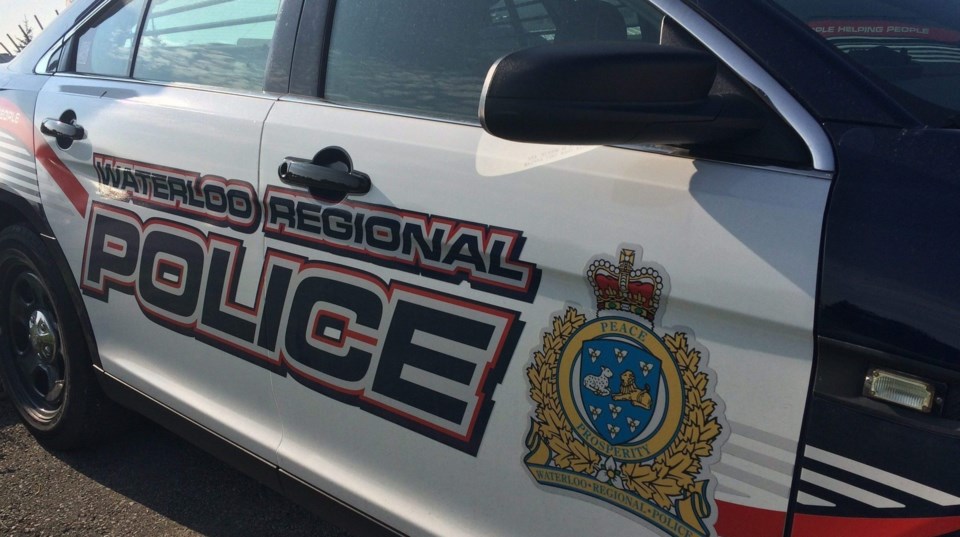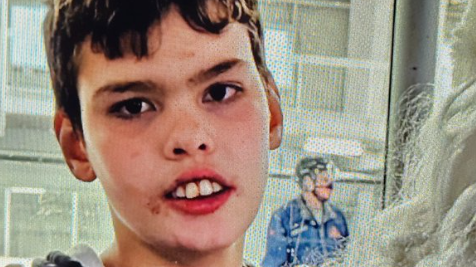Ebola risk low in Canada, vaccine for health workers coming: Ambrose
Posted Oct 1, 2014 12:20:09 PM.
This article is more than 5 years old.
Federal Health Minister Rona Ambrose says the risk for Ebola in Canada is “very low” and “we have strong measures in place to protect Canadians.”
The information comes after the U.S. confirmed on Tuesday a man who arrived in Texas from Liberia on Sept. 20 came down with the disease. He was put in isolation in a Dallas hospital on Sunday.
Ambrose reiterated the U.S. patient did not travel by way of Canada and he was not contagious during his travel time.
She added there are no direct flights to Canada from affected countries in West Africa.
Alongside Dr. Gregory Taylor, chief medical officer of Canada, Ambrose outlined the systems and procedures Canada has in place to detect the virus and prevent outbreaks at home.
Screening and diagnosing
“In the chance there are suspected cases we can quickly test and take appropriate action,” Ambrose said.
Canadian border guards are on alert to check travellers for signs of illness and new computer alerts prompt customs agents to ask travellers coming by way of West Africa directly if they are sick, Dr. Taylor said.
If a traveller is suspected of being sick with the virus at an airport or on a plane, quarantine officers — who are trained health care professionals — can take the person directly into isolation, including boarding a landed plane and personally escorting the passenger.
These workers are operating under Canada’s Quarantine Act.
Ambrose and Dr. Taylor touted rapid diagnostic ability as a necessity for stopping the potential spread of the virus.
Blood test results can be turned around in three hours, Dr. Taylor said, but only two labs are currently equipped to conduct definitive testing for the Ebola virus: Winnipeg’s National Microbiology Laboratory and a lab in Quebec.
He said labs in British Columbia, Alberta, Ontario, and Nova Scotia will soon have similar capabilities.
Taylor said educating the public and health care providers to look for signs of Ebola is an important measure, something he is not confident occurred in the U.S. case.
“We are doing our best in Canada so that does not happen,” he said, referring to the four-day period the patient spent outside of isolation.
Despite having symptoms, the patient in the U.S.was sent home and did not go into isolation until two days later. Dr. Taylor said if the patient had disclosed his recent time spent in Liberia, or if the health care provider had asked, the man might have been isolated sooner. It is unclear where the lapse in communication occurred.
Experimental vaccine
Canada has a stockpile of 1,500 units of an experimental Ebola vaccine, most of which is earmarked to be shipped to the outbreak’s epicentre in West Africa.
Dr. Taylor said the government is working with Médecins Sans Frontières (MSF) and the World Health Organization (WHO) to ship 800 to 1,000 units.
Most of the units of the vaccine are still sitting in the National Microbiology Laboratory in Winnipeg while logistics are sorted out and further testing is completed, Dr. Taylor said.
“This is a very difficult thing to do. … The concern of the globe is this vaccine when we ship it doesn’t make people worse,” he said.
Taylor added that the potential risk of western medicine causing harm could be devastating when there is already mistrust of westerners’ efforts in the disease ravaged region.
Some units of the vaccine have been sent to a Geneva hospital and to Emory University Hospital in Atlanta, where two American missionaries were treated for the virus over the summer.
The remaining units will be reserved for front-line health care workers in Canada.
“If they are not protected, they are not able to assist those folks that are getting ill,” Dr. Taylor said. He added that health care workers are better positioned to give informed consent when taking experimental treatments.
Aid for Africa
Ambrose touted the Canadian government’s contributions to combatting the outbreak in West Africa, but said she echoed the call for more action issued by Stephen Cornish, the executive director of Doctors Without Borders Canada.
“We do want to see more boots on the ground. Obviously there is a hesitance for many over potential risks or exposure,” Ambrose said.
Canada has donated $35 million to MSF, WHO, and the Red Cross to aid in their efforts and made equipment, such as face shields and gloves, available.
There are logistical delays in shipping some of that equipment, Dr. Taylor said, with air carriers hesitant to fly into affected areas. The equipment will be sent by sea on a priority basis.
A mobile lab was also dispatched from the National Microbiology Lab in June with supplies and scientists to aid in rapid diagnostic support.
“Canadians can be proud of our efforts to fight the outbreak in West Africa,” Ambrose said.
Liberia, Sierra Leone and Guinea are struggling under the largest Ebola outbreak the world has ever seen. The outbreak, which probably started last December, went unnoticed until March in a part of Africa where Ebola had never been seen before, but sudden deaths aren’t uncommon.
The WHO’s latest figures — released Wednesday — suggest at least 7,178 people have been infected with the virus and nearly 3,338 have died. Before this outbreak, the largest outbreak of Ebola involved fewer than 450 cases.










